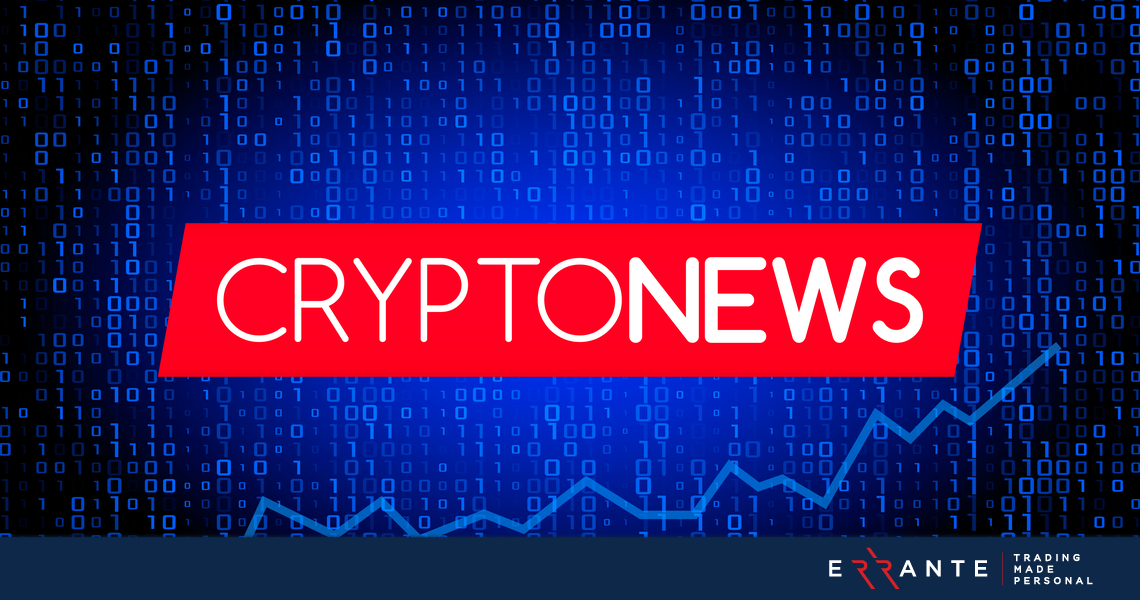An Extensive Evaluation of Current Occasions and Updates in the Evolving World of Digital Currencies News
As the electronic money landscape continues to develop, current fluctuations in market characteristics and regulative structures have caught the attention of financiers and policymakers alike. With federal governments grappling to establish balanced regulative methods, the inquiry emerges: just how will these developments affect the future trajectory of digital currencies?
Current Market Patterns
Evaluating current market fads in digital money reveals a landscape defined by volatility and fast innovation. Over the previous year, we have observed substantial variations in copyright valuations, affected by elements such as market sentiment, technical innovations, and macroeconomic conditions. Bitcoin, for instance, has actually experienced considerable rate swings, reflecting both its condition as a market leader and its sensitivity to speculative trading.
In addition, the appearance of decentralized money (DeFi) platforms and non-fungible tokens (NFTs) has reshaped the electronic currency room, attracting a diverse selection of investors and users. DeFi jobs, particularly, have actually gained momentum by using cutting-edge economic solutions without conventional middlemans, better driving rate of interest in blockchain technologies.
Institutional financial investment has likewise risen, with major firms and investment company alloting substantial resources to digital possessions, indicating growing acceptance within mainstream financing. This influx of institutional capital has added to the maturation of the market, resulting in enhanced liquidity and the growth of much more sophisticated trading platforms.
As the digital currency ecosystem remains to progress, it is important for capitalists and stakeholders to stay cautious, adapting to the dynamic setting formed by technological, financial, and social aspects.
Regulative Growths
As the digital money market develops and attracts raised institutional investment, regulative advancements are coming to be an essential aspect influencing its trajectory. Federal governments and governing bodies worldwide are striving to establish frameworks that stabilize innovation with consumer protection and monetary stability. The advancing nature of electronic assets requires a detailed method to policy, attending to concerns such as market manipulation, anti-money laundering (AML) conformity, and the category of cryptocurrencies.
In the USA, the Securities and Exchange Payment (SEC) has increased analysis of First Coin Offerings (ICOs) and digital asset exchanges, seeking quality on which symbols qualify as safety and securities. Meanwhile, the European Union is advancing with its Markets in copyright-Assets (MiCA) guideline, intending to develop a unified regulative setting throughout participant states.
These contrasting strategies highlight the worldwide regulative landscape's intricacy, emphasizing the requirement for partnership among territories to promote a secure and lasting digital money community. The future success of electronic currencies will mainly depend on just how these regulative difficulties are attended to.

Technical Technologies
Technical advancements are often reshaping the landscape of electronic money, driving improvements that enhance safety and security, efficiency, and customer experience. The advancement of blockchain innovation, as an example, has presented scalable options such as sharding and layer-2 procedures, which considerably boost deal speeds and reduce expenses. These developments are crucial for suiting the enhancing need for electronic deals and fostering more comprehensive adoption.
Moreover, the combination of expert system (AI) and artificial intelligence in the world of digital money is optimizing trading methods and run the risk of monitoring. Algorithms can assess large datasets to recognize market patterns and abnormalities, enabling even more informed decision-making for financiers and investors alike.
Additionally, the increase of decentralized finance her latest blog (DeFi) platforms exhibits how technological technology is transforming standard financial systems. Smart contracts assist in trustless Homepage transactions and automate processes, getting rid of middlemans and enhancing effectiveness.
In cybersecurity, the execution of advanced cryptographic methods is strengthening the security of digital budgets and exchanges, protecting users from prospective violations. On the whole, these technological advancements are not just redefining functional standards however likewise leading the way for a more available and safe economic environment.
Financial Investment Opportunities

Purchasing established cryptocurrencies like Bitcoin and Ethereum continues to be popular because of their vast approval and historic relevance. copyright news. Several financiers are currently exploring altcoins, which typically display greater volatility and the possibility for substantial returns. DeFi platforms, which help with loaning, loaning, and trading without middlemans, have actually attracted considerable capital, supplying ingenious economic remedies and investment yields
Furthermore, NFTs have actually changed the art and antiques market, making it possible for electronic possession and provenance confirmation. This expanding field has actually seen substantial financial investments from both people and establishments, mirroring a change in just how worth is viewed in the electronic age.
As the digital currency landscape continues to develop, investors must conduct comprehensive research and remain watchful (copyright news). Understanding market trends, governing look what i found adjustments, and technical improvements will be essential for taking full advantage of investment opportunities in this vibrant area
Worldwide Economic Influence
Just how substantially can digital money improve the worldwide economy? The arrival of electronic currencies holds transformative possibility, affecting various facets of financial structures worldwide. As decentralized economic systems gain grip, they challenge typical banking models, making it possible for faster, indeterminate deals with reduced costs. This effectiveness can cause increased financial inclusivity, particularly in underbanked areas, promoting entrepreneurship and technology.
Moreover, electronic money may affect financial policy by giving reserve banks with brand-new tools for financial monitoring. Central Bank Digital Currencies (CBDCs) can enhance deal openness and improve the effectiveness of financial supply, directly impacting rising cost of living control and fiscal policy efficiency.
The surge of cryptocurrencies can also change financial investment landscapes, attracting capital streams right into arising markets and diversifying portfolios. Nevertheless, the volatility related to these digital assets introduces dangers, demanding robust regulatory frameworks to secure capitalists and keep market stability.

Verdict
To conclude, the developing landscape of digital money is defined by significant market volatility, boosting institutional investment, and quick technical developments. Governing frameworks are adjusting to balance innovation with customer protection, while decentralized money and non-fungible tokens proceed to reshape typical monetary frameworks. As stakeholders navigate this vibrant environment, continuing to be notified concerning present fads and advancements is crucial for profiting from emerging chances and mitigating possible dangers within the electronic currency environment.